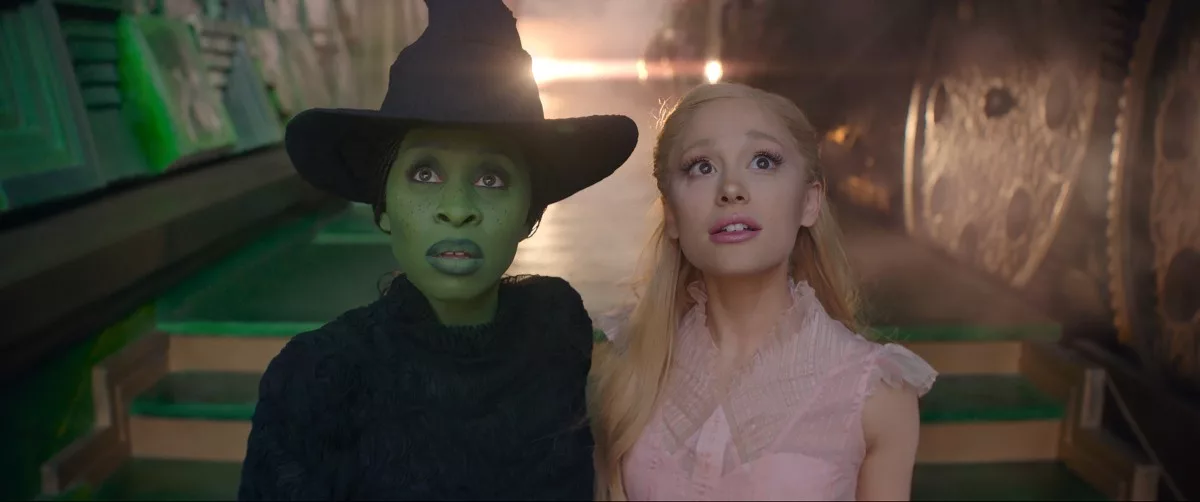BOTTOM LINE
A Cleverly Written Thrill
RATING
3/5
CENSOR
U/A, 2h 22m
What Is the Film About?
Ammachi (granny) goes missing from Basil Joseph’s home, and his neighbor Nazriya Nazim starts suspecting him for several reasons. Basil Joseph claims that Ammachi’s disappearance is due to her Alzheimer’s disease, but Nazriya remains unconvinced. Is there more to her suspicion? What serious turn does the story take, and what is the real reason behind Ammachi’s mysterious disappearance? These questions form the core plot of Sookshmadarshini.
Performances
Basil Joseph and Nazriya Nazim compete with each other in running the show with their seamless performances, delivering exactly what a thriller drama needs.
Both carry the film on their shoulders through the cat-and-mouse, tit-for-tat narrative. Though Sookshmadarshini is a thriller, it stands out in their filmography due to the superb balance and finesse they bring to their performances.
The styling and performances perfectly complement the story, as expected from a quality Malayalam film.
Analysis
Sookshmadarshini is directed by MC Jithin, who previously directed Nonsense, a film that also grabbed the attention of Telugu OTT viewers.
In Sookshmadarshini, director MC handles a simple plot with a suspenseful hook but needs to tightly guard the secret and maintain the viewer’s attention until the very last scene.
While the first half feels simple and slow, and the director seems to be trying too hard not to reveal even the slightest hint, the mix of humor and suspense keeps the narrative engaging.
By the time we reach the interval, the story pulls us in, yet the success lies in the fact that nothing is really revealed.
At the same time, it feels like the buildup in the first half raises high expectations for the second half, which must deliver big; otherwise, it risks becoming frustrating.
The second half introduces more intrigue through a sister character, and the suspense around the ‘secret’ driving all the drama becomes even tighter.
Although most of the story takes place in a neighborhood between two houses, the quality technical work -be it the camera or the background score -elevates the suspense as the director pushes the story forward.
It might not a perfect thriller but offers enough to keep you hooked, especially in the second half.
Some exaggeration or logical misses in Nazriya’s character might be noticeable, but they don’t affect the viewer’s engagement, which is the best part.
Also, the director successfully breaks away from the regular beats of a typical comedic thriller, adding a sense of freshness.
Overall, Sookshmadarshini is a cleverly written, smart mix of comedy and suspense, with the director maintaining the secret until the climax through an engaging narrative. The film also offers superb, fresh BGM and visuals that perfectly match the theme, making it a satisfying watch.
Performances by Others Actors
Sookshmadarshini is a film that relies on its supporting cast as well, and their selection is flawless.
Actors like Manohari Joy who plays Ammachi (granny), Kottayam Ramesh, Deepak Parambol, and Sidharth Bharathan, along with the female cast -Akhila Bhargavan, Pooja Mohanraj, and Merin Philip -may not be familiar to Telugu audiences, but their performances clearly demonstrate how perfectly they fit their roles. Each one proves to be an asset to the film.
Music and Other Departments?
First and foremost, the background score by Christo Xavier is terrific, we must say. It is one of the best BGMs of the year. It’s neither too loud nor too soft; instead, it sounds fresh and, most importantly, perfectly matches the situations, elevating them to a whole new level. He has justified every single penny of his remuneration.
Camera work by Sharan Velayudhan is perfect. The film moves between two houses for the most part, but the camera angles and visual quality never feel boring or low-budget. He has done full justice to what the film requires.
Editing by Chaman Chakko could have been sharper. Though Sookshmadarshini is an engaging watch, it does feel like it could have been sharper.
Though the small VFX work handled by Black Maria Studio is slick, especially showing WhatsApp conversations as text on screen, it came out trendy and of good quality.
Production values by Happy Hours Entertainment and Ava Productions are quite adequate and immersive for the simple setup it requires, pulling it off with quality.
Highlights?
Superb BGM that enhances most scenes
Sustaining suspense until the end
Engaging writing and narrative
Performances by Nazriya and Basil Joseph
Drawbacks?
Logical flaws or occasional exaggeration
Feels forced at times to keep secrets until the end
A bit of a slow first half
Did I Enjoy It?
Yes, it’s an engaging mix of humor and thriller.
Will You Recommend It?
Yes, without hesitation.
Sookshma Darshini Movie Review by M9
This Week Releases on OTT – Check ‘Rating’ Filter

































/cdn.vox-cdn.com/uploads/chorus_asset/file/25739950/247386_Elon_Musk_Open_AI_CVirginia.jpg)



